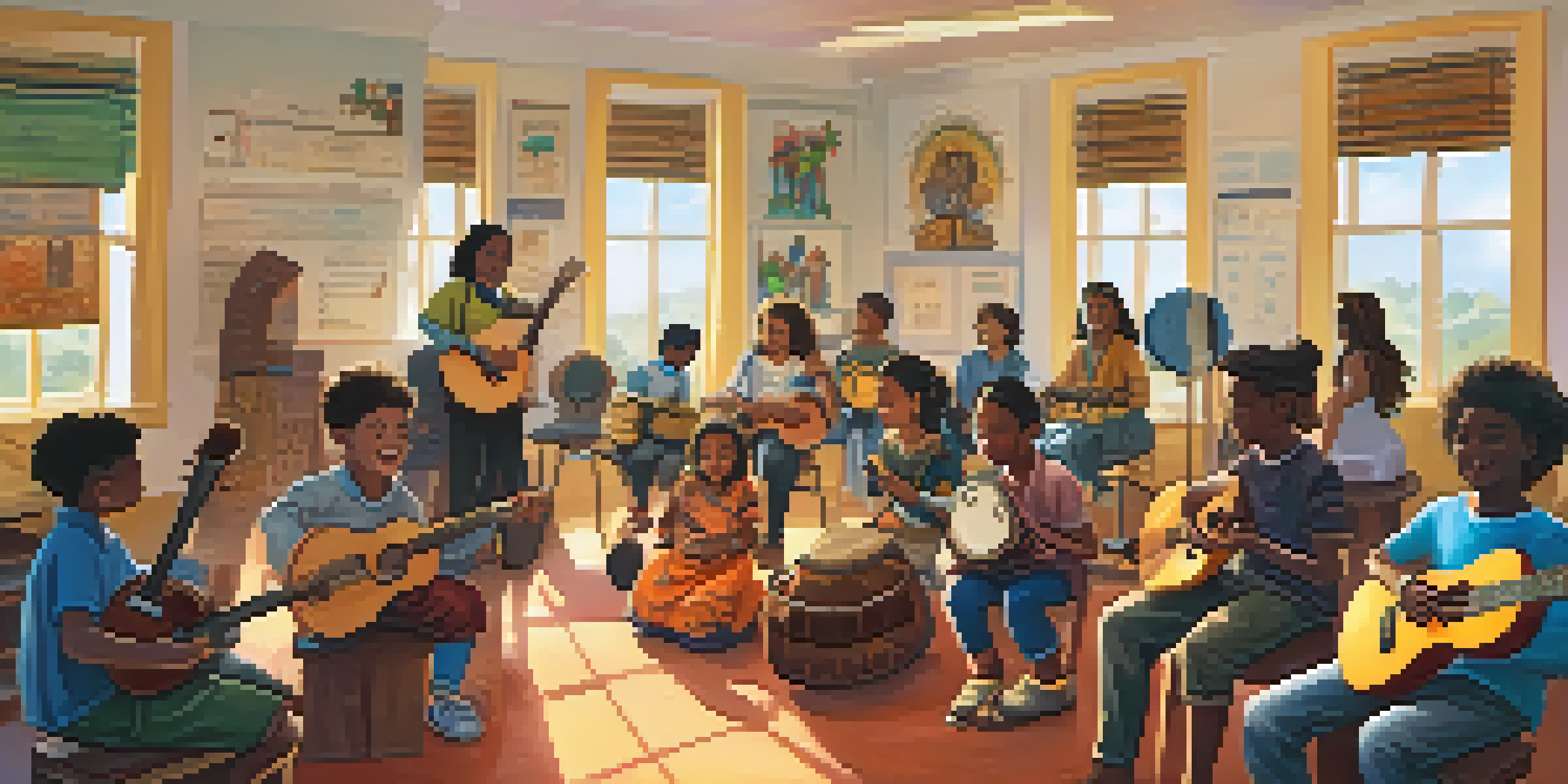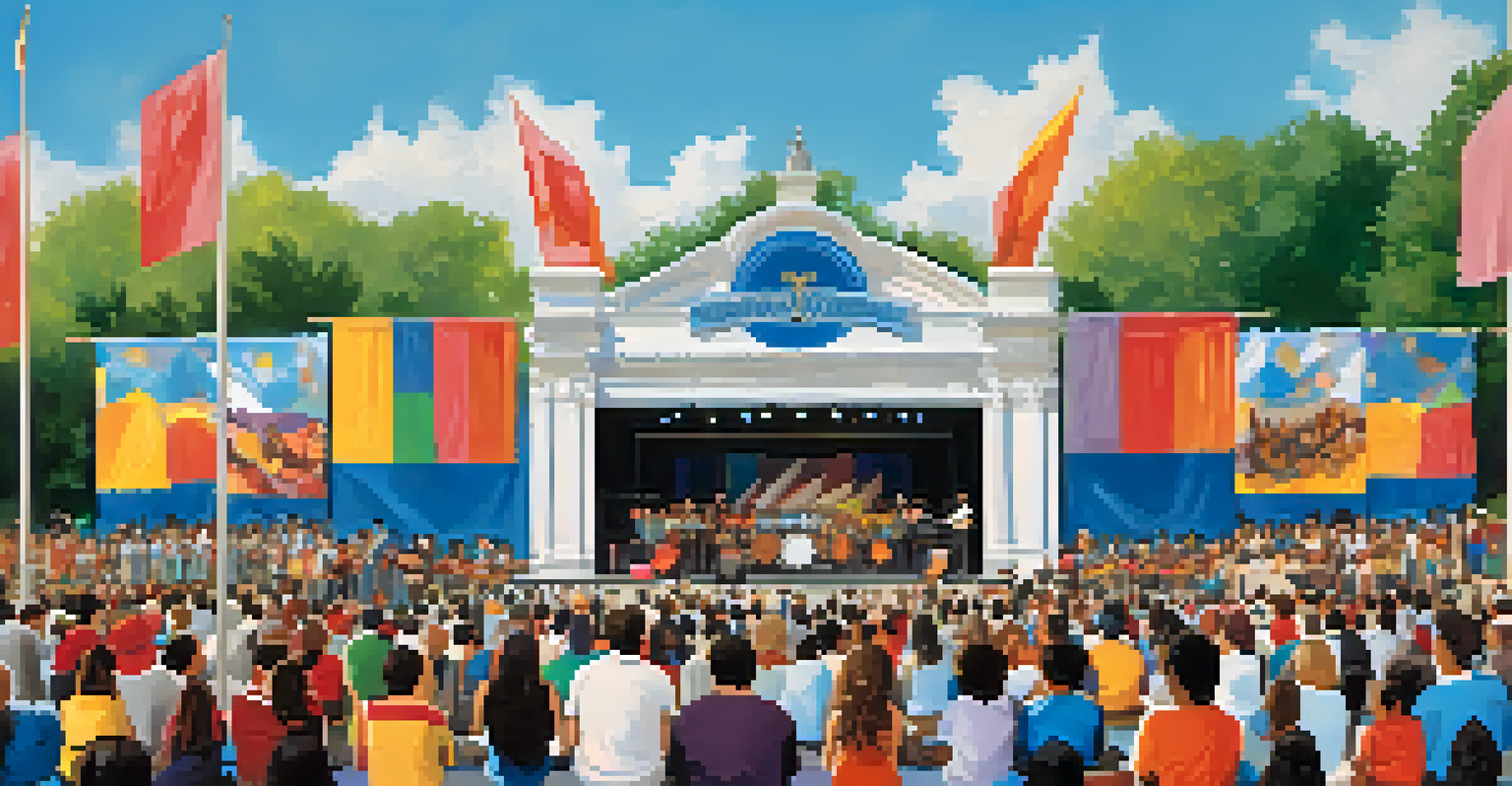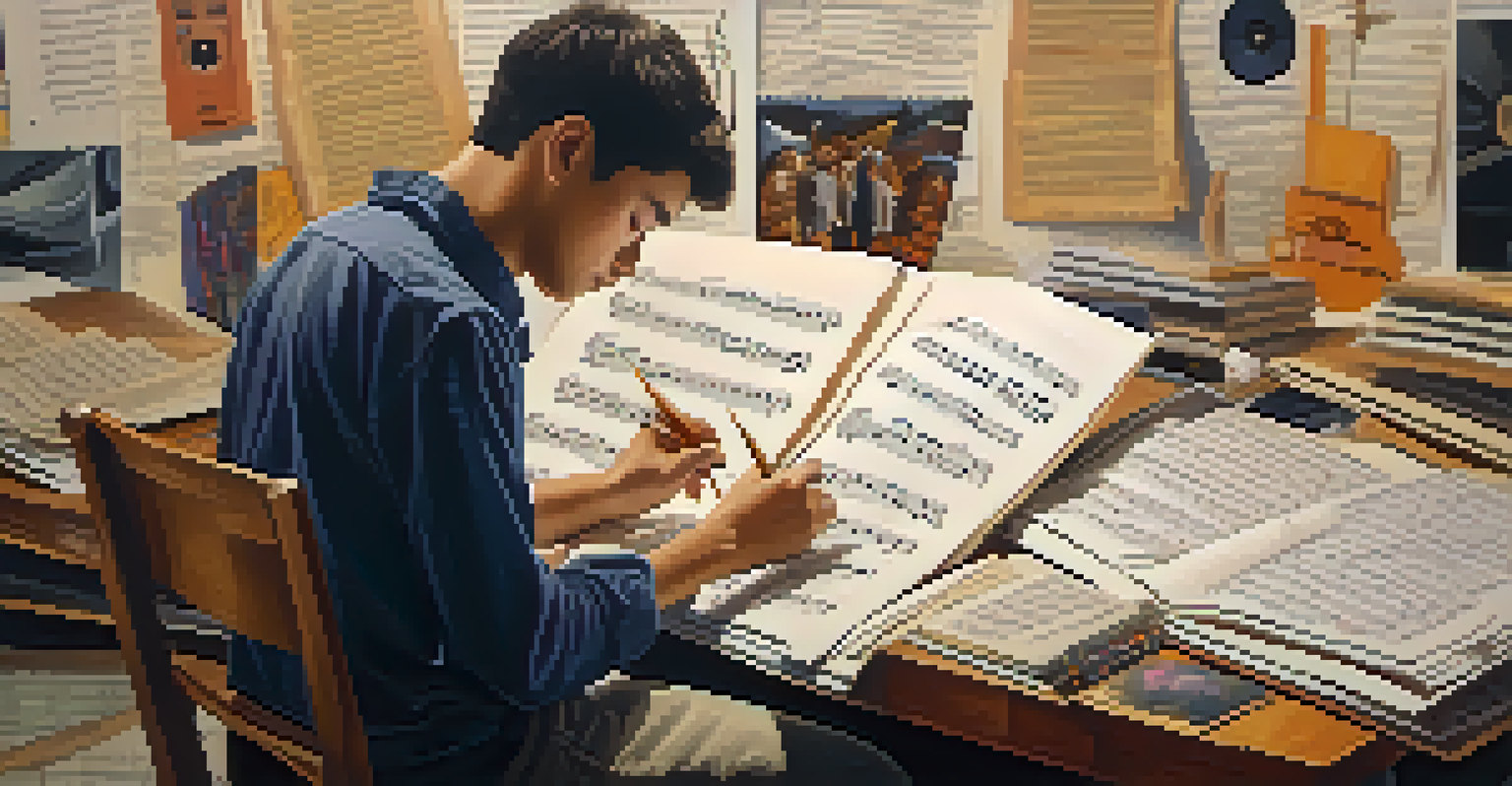The Connection Between Music Education and Global Citizenship

Understanding Global Citizenship in Today’s World
Global citizenship is about recognizing our interconnectedness in an increasingly globalized world. It means understanding that our actions can have ripple effects beyond our immediate surroundings. In essence, it encourages individuals to think beyond borders and embrace their role in a larger community.
Music can change the world because it can change people.
This concept is particularly important for young people, as they are the future leaders, thinkers, and creators. By fostering a sense of global citizenship, we equip them with the mindset to tackle pressing global challenges, from climate change to social injustice. Education plays a crucial role in developing this consciousness, and music education is a key player.
Music has a unique ability to transcend language and cultural barriers, making it an ideal medium for teaching global citizenship. Through engaging with diverse musical traditions, students can cultivate empathy and appreciation for different cultures, which is essential for becoming responsible global citizens.
The Role of Music Education in Fostering Empathy
Empathy is a cornerstone of global citizenship, and music education is a powerful tool for nurturing this quality. When students learn to play or appreciate music from various cultures, they are essentially stepping into someone else’s shoes. This experience helps them understand and appreciate different perspectives, fostering a deeper sense of connection with others.

For instance, learning to play an African drum or a traditional Indian instrument can open students' eyes to the histories and stories behind these musical forms. As they explore these diverse soundscapes, they not only gain musical skills but also an appreciation for the cultures they represent. This enriched understanding can lead to a more empathetic worldview.
Moreover, collaborative music-making—whether in a band, choir, or ensemble—encourages teamwork and communication among students from different backgrounds. By working together toward a common goal, students learn to value each other's contributions and perspectives, further reinforcing their empathetic skills.
Building Cultural Awareness Through Musical Exposure
Cultural awareness is a vital component of global citizenship, and music education provides a rich tapestry of cultural experiences. Through exposure to various musical genres and traditions, students can learn about the historical and social contexts that shape different cultures. This knowledge is crucial in a world where understanding and appreciating diversity is more important than ever.
The best way to find yourself is to lose yourself in the service of others.
For example, a music curriculum that includes reggae, flamenco, or classical Indian music allows students to explore the cultural narratives behind these styles. They not only learn about the music itself but also about the people, histories, and values associated with it. This comprehensive approach helps students develop a broader worldview.
Additionally, incorporating global music into the classroom can spark discussions about cultural appropriation and respect. By critically engaging with these topics, students can better understand the nuances of cultural exchange and the responsibilities that come with it, further enhancing their role as informed global citizens.
Promoting Social Responsibility Through Music Projects
Music education can inspire students to take action and engage in social responsibility initiatives. When students participate in musical projects that address social issues—such as community concerts for charity or awareness campaigns—they learn about the power of music as a tool for change. This hands-on experience can be incredibly motivating and empowering.
For instance, a school band that organizes a benefit concert for a local charity not only hones their musical skills but also learns about the importance of giving back to the community. These projects help students see the direct impact of their efforts and foster a sense of agency in contributing to positive change.
Moreover, these experiences can encourage students to think critically about social justice issues on a global scale. By connecting local actions to global movements, students can grasp the idea that their contributions matter, reinforcing their identity as engaged global citizens.
Enhancing Communication Skills Through Group Music Activities
Effective communication is essential for global citizenship, and music education offers a unique way to develop these skills. Participating in group music activities, such as ensembles or choirs, requires students to listen actively, collaborate, and express themselves clearly. These experiences can translate into improved interpersonal skills beyond the music classroom.
For example, when a group of students must coordinate their playing in a band, they learn to communicate non-verbally and verbally. They develop the ability to give and receive feedback, which is crucial in any collaborative setting. This practice sharpens their overall communication abilities, preparing them for diverse environments in the future.
As students engage with their peers in a musical context, they also learn to appreciate different communication styles, shaped by cultural backgrounds. This awareness can enhance their adaptability and sensitivity in global interactions, making them more effective communicators and collaborators in a multicultural world.
Developing Critical Thinking Skills Through Musical Analysis
Critical thinking is a vital skill for global citizens, and music education can play a significant role in honing this ability. By analyzing different musical styles, structures, and contexts, students learn to think critically about art and its impact on society. This analytical approach can also extend to understanding global issues.
For instance, examining the lyrics of protest songs from various cultures can lead to discussions about social justice, human rights, and activism. Students can explore how music reflects societal values and challenges, encouraging them to think critically about the messages conveyed through art. This process fosters a deeper understanding of the world around them.
Furthermore, when students are encouraged to create their own musical compositions, they engage in problem-solving and decision-making processes. This hands-on experience promotes innovation and adaptability, skills that are essential for navigating the complexities of a global society.
The Lasting Impact of Music Education on Global Citizenship
The impact of music education on global citizenship extends far beyond the classroom. As students embrace their musical experiences, they carry the lessons of empathy, cultural awareness, and social responsibility into their lives. This lasting influence shapes them into informed, engaged citizens who are more likely to contribute positively to the world.
Research shows that individuals with a strong foundation in music education often exhibit greater cultural sensitivity and a commitment to social causes. The skills and values developed through music education can inspire students to pursue careers in fields that promote global understanding and cooperation.

Ultimately, by investing in music education, we are not just teaching students how to play an instrument; we are nurturing a generation of global citizens who are equipped to tackle the challenges of an interconnected world. The melodies they create today can echo in the positive changes they inspire tomorrow.